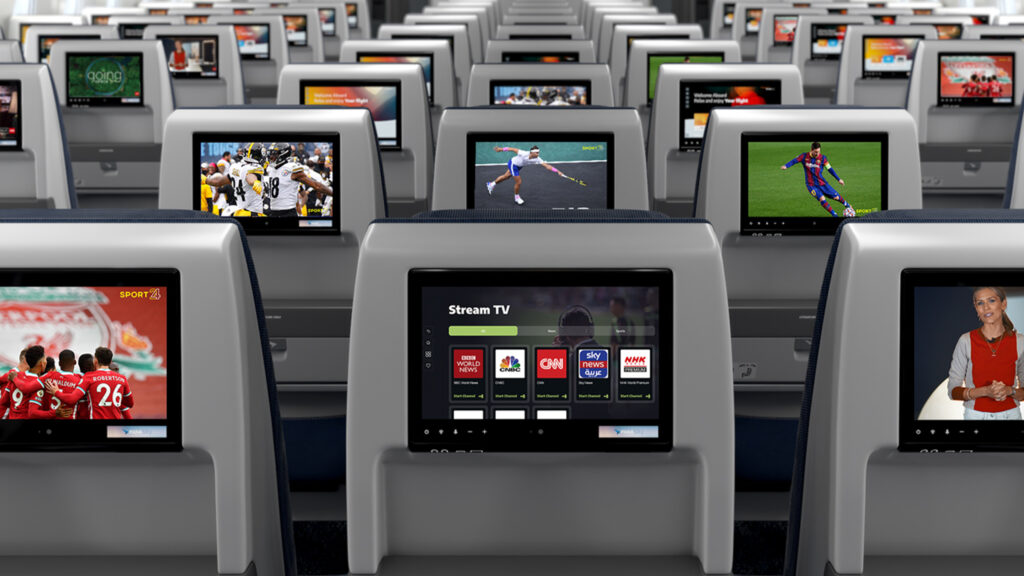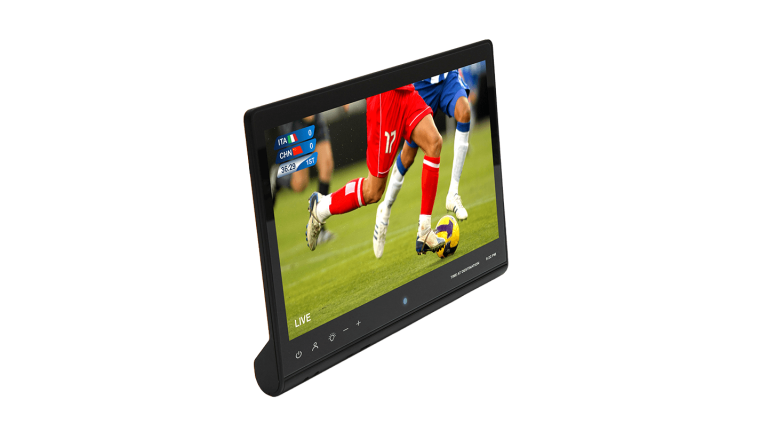
It is increasingly common for an airline to offer some kind of in-flight entertainment for its passengers, whether through seatback screens or personal devices. One way that airlines can further improve their bottom lines is by adding live sports to their in-flight entertainment (IFE) offering.
Customers have always cared about the quality of the in-flight experience. As air travel makes a comeback from the challenges of the COVID-19 pandemic, it’s even more important to consider what components contribute to a positive experience for passengers.
Watching live events is a unique and valuable experience for many across the world. Especially for national and international competitions, like the World Cup, in-flight viewership can increase tenfold, according to Dominic Green, Senior Director of Product Line Management at Panasonic Avionics. “To harness that ability [to watch live events]—and to take credit for it as an airline that provides access to these unmissable moments—is extremely powerful for curators of the passenger experience,” he explained.
Green added, “Showing live sports on board brings the in-air experience closer to the expectations consumers have on the ground.”

Airlines can take advantage of the widespread interest in sports by making live events available for viewing in-flight. Men account for about 60% of the market for sports viewership, but women are responsible for purchasing close to half of all NFL merchandise. In fact, nearly 80% of all sales of sports apparel are conducted with women, according to a recent NYU study cited by Panasonic.
Panasonic Avionics has partnered with IMG to offer Sport 24 and Sport 24 Extra for in-flight entertainment. Live sports are a core part of Panasonic’s offerings for passenger engagement, in addition to live news. According to the company, including live sports with IFE can have a positive impact on budgetary efficiency and tangible metrics.
“Live content is unmissable, and the must-see element can mean changing the way airlines think about appropriating content budgets,” Green shared.
He added, “More time spent engaging with other content experiences like maps or live television means less time and resources that airlines need to allocate in pursuing giant, expensive libraries of content.”
Panasonic Avionics provides high-speed in-flight connectivity for the commercial aviation industry. Their connectivity services provide coverage for 99.8% of global flight routes. Panasonic and OneWeb entered into a distribution agreement to add low earth orbit (LEO) networks to Panasonic’s satellite network. The company’s single panel antenna, or SPA, is a Ku-band antenna with a simplified design that is mounted on the fuselage. Panasonic invests in electronically-steered antennas (ESAs) for LEO and GEO constellations.


